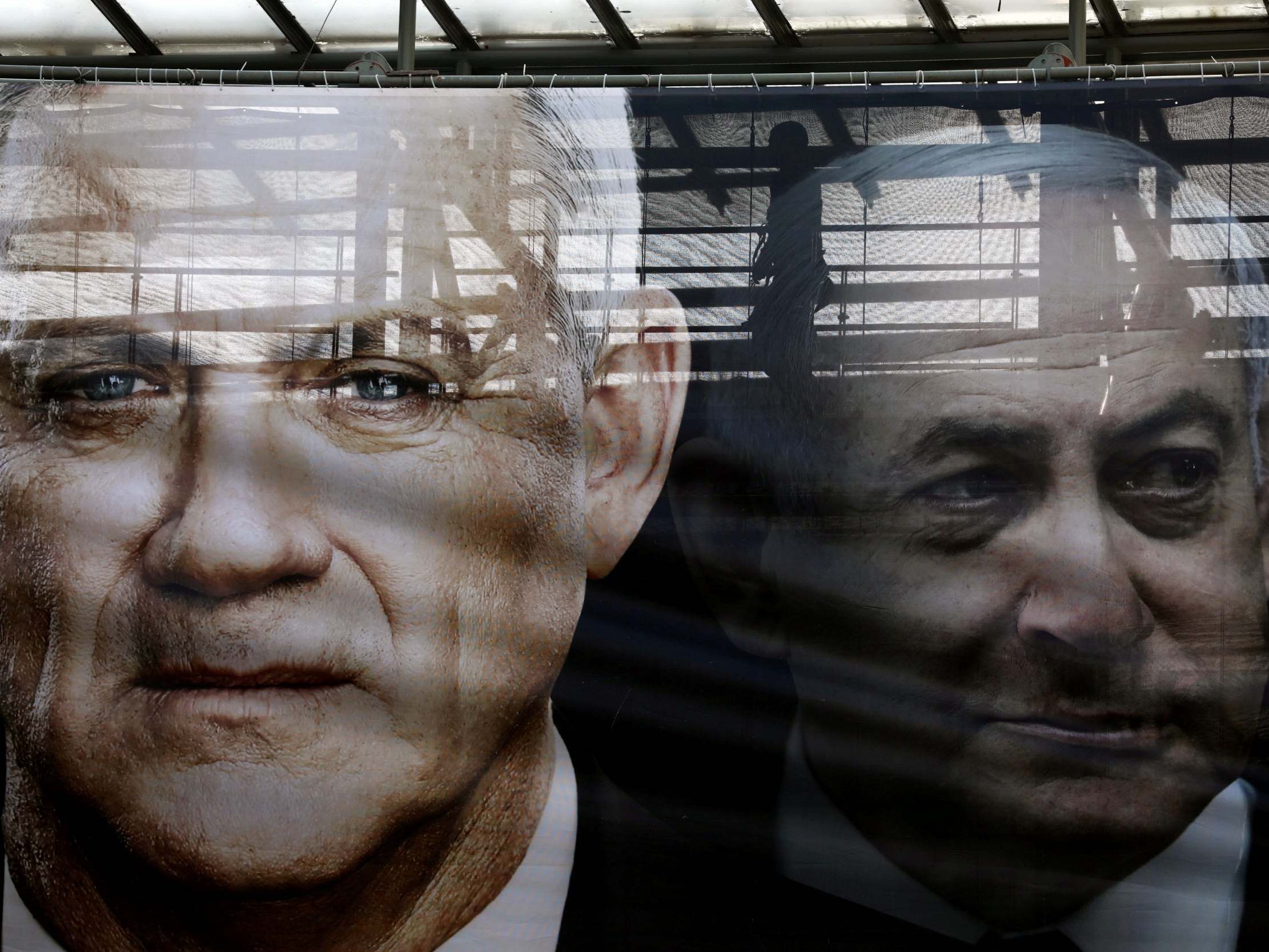Coronavirus: Netanyahu and rival Gantz announce power sharing deal to take turns as PM
After three inconclusive elections, the agreement will see both leaders take office in a rotation agreement, breaking the deadlock

The Israeli prime minister Benjamin Netanyahu and his chief rival Benny Gantz have announced a power-sharing deal to form an emergency coalition government, ending a year of political deadlock, allowing the embattled premier to cling on to power.
After weeks of fraught negotiations, the two leaders agreed on Monday to a three-year government that would see Mr Netanyahu act as prime minister until October 2021 with Mr Gantz, the country’s ex-army chief serving as his deputy.
After that time, Mr Gantz would take over.
The statement, signed by both Mr Netanyahu’s right-wing Likud and Mr Gantz’s Blue and White, stressed that this was an emergency body which for the initial six-month period would only be permitted to bring legislation to the parliament that concerned the fight against coronavirus.
During that time, a negotiating team would hammer out "a policy outline" for a long-term unity government and the details of the premiership rotation.
The cabinet positions would, however, be divided between the two parties with the Likud and its political allies holding portfolios including finance, health and education while Blue and White and their partners would hold the defence, foreign affairs, justice and economy ministries, among others.
Mr Netanyahu tweeted: "I promised the State of Israel a national emergency government that would work to save the lives and livelihoods of Israeli citizens. I will continue to do everything for you, the citizens of Israel."
Mr Gantz added on Twitter: "We prevented fourth elections. We will safeguard democracy. We will fight the coronavirus and take care of all Israeli citizens."
The agreement also mentioned the Trump administration’s peace deal for the region, which controversially handed Israel swathes of land in the occupied West Bank.
The statement hinted that the issue of annexation, which is deemed illegal under international law and is widely rejected by the Palestinians, would be brought before the government and parliament in July.
The deal comes after neither party was able to sweep a majority of the 120 seats in Israel’s Knesset to form a government following three inconclusive elections.
Mr Netanyahu fought a bitter battle against his rival in the last vote which took place on 2 March, as he struggled for political survival after being indicted across three corruption cases.
Mr Gantz had initially refused to join forces with the prime minister because of the graft trials.
But facing the prospect of a fourth election the pair eventually agreed to work on forming an emergency coalition government saying it would help the country stamp out the spread of the coronavirus.
Monday’s deal ends weeks of negotiations which have largely revolved around Mr Netanyahu’s corruption trial set to start next month. The main sticking points included a demand by the prime minister to have more say on judicial appointments, which could play a role if his case eventually reaches the Supreme Court.
While the announcement will be a relief to many Israeli citizens fearing yet more elections, it will probably spark some uproar in the country, particularly from Mr Gantz's former elections partners who broke away from Blue and White over the decision to join forces with the prime minister.
Just a day before thousands of people gathered in a “social distance” protest in Tel Aviv against Mr Netanyahu, who they accused of eroding democracy by trying to “shield” himself from prosecution.
Demonstrators, including Mr Gantz’s ex-elections partners, urged him to abandon efforts to form a joint government.
There was immediate criticism from the Arab-majority Joint List, whose leader Ayman Odeh spoke at the Sunday rally.
Yousef Jabareen, head of the Joint List’s International Relation Committee and an MP, said on Monday the deal left them “extremely worried” that the new government would see Israel immediately start annexing settlements in the occupied West Bank.
“We also anticipate that national leaders will continue their incitement and exclusion of the Arab minority,” he added.
Subscribe to Independent Premium to bookmark this article
Want to bookmark your favourite articles and stories to read or reference later? Start your Independent Premium subscription today.

Join our commenting forum
Join thought-provoking conversations, follow other Independent readers and see their replies